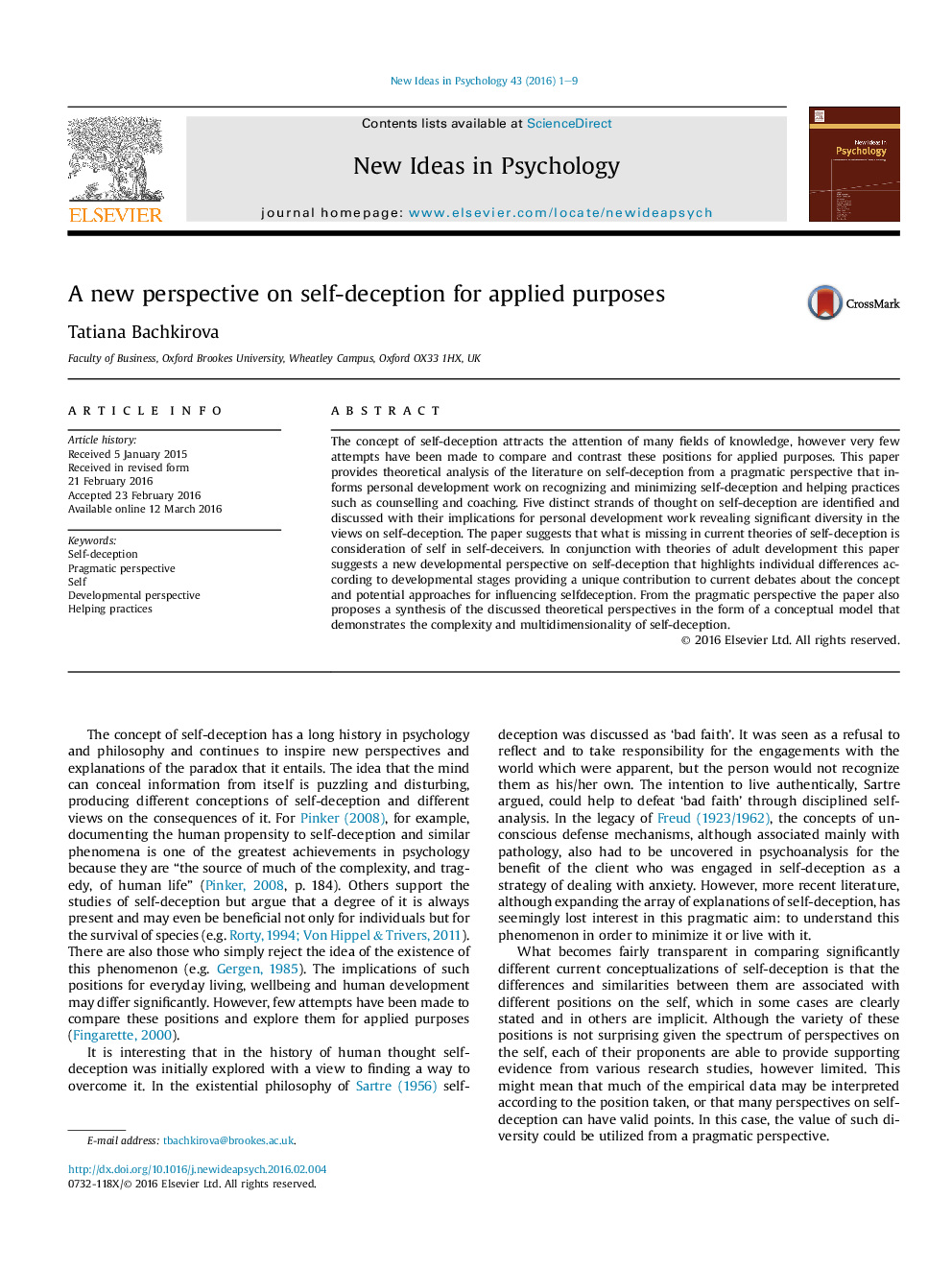| Article ID | Journal | Published Year | Pages | File Type |
|---|---|---|---|---|
| 331396 | New Ideas in Psychology | 2016 | 9 Pages |
The concept of self-deception attracts the attention of many fields of knowledge, however very few attempts have been made to compare and contrast these positions for applied purposes. This paper provides theoretical analysis of the literature on self-deception from a pragmatic perspective that informs personal development work on recognizing and minimizing self-deception and helping practices such as counselling and coaching. Five distinct strands of thought on self-deception are identified and discussed with their implications for personal development work revealing significant diversity in the views on self-deception. The paper suggests that what is missing in current theories of self-deception is consideration of self in self-deceivers. In conjunction with theories of adult development this paper suggests a new developmental perspective on self-deception that highlights individual differences according to developmental stages providing a unique contribution to current debates about the concept and potential approaches for influencing selfdeception. From the pragmatic perspective the paper also proposes a synthesis of the discussed theoretical perspectives in the form of a conceptual model that demonstrates the complexity and multidimensionality of self-deception.
